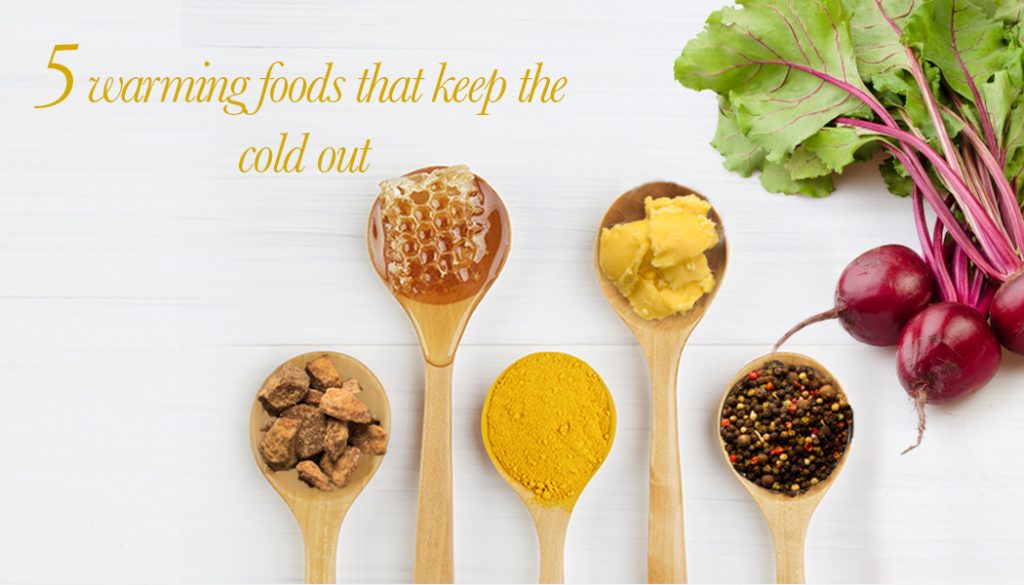- 29 December 2017
- 5 mins read
Warming foods are often misunderstood as food that is heated to a certain temperature and cooling foods as the ones that need to be frozen. But according to the time-honored knowledge of Ayurveda, food is classified as warming or cooling as per the internal nature of the food product and its effect on our digestive system. Which in turn is directly affected by the seasons or ritus of the year.
In Ayurveda, the concept of Ritucharya - the principle of lifestyle adapted to seasons – is considered sacrosanct. And that is why choosing seasonal fruits and vegetables is considered the key to a healthy and toxin-free life. In the summers our metabolism is higher and so the body requires more hydration as well as light and easy food. In the winters, though the metabolism works harder to maintain a comfortable body temperature. Hence our body needs more energy from richer and more nourishing foods. This is also the reason why Ayurveda recommends the oil, butter, spices and dried fruits be consumed in various ways during the cold months.
Here are the top 5 warming foods that we recommend and can be easily incorporated into your diet to help keep you warm as the temperature dips:
GHEE:
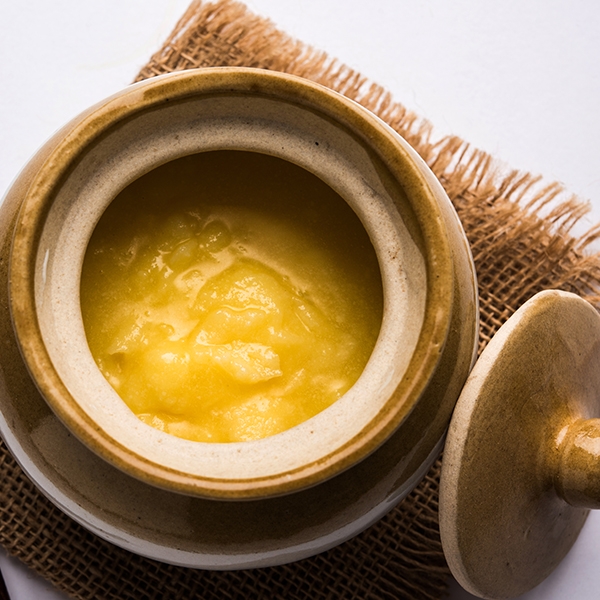
Now accepted by modern nutritionists as a ‘good fat’, Ghee is a powerhouse of nutrition when consumed in moderation, especially during winters. It is a rich source of butyric acid that is converted into energy by our system and is also rich in Vitamins A & E. Pure Ghee is prepared in such a way as to be clear of any milk impurities and hence is easy to digest. Think of this as the lubrication needed for the smooth functioning of different parts of our body. Add this warming ingredient to your desserts like carrot ‘halwa’ and bread puddings as well as in lentils and vegetable preparations to keep your body naturally warm. For an energy boost, a teaspoon of Ghee mixed in warm milk serves as an instant pick-me-up. In fact, a good massage with pure oils and ghee is also said to keep the muscular aches and stiffness in the cold weather away.
TURMERIC
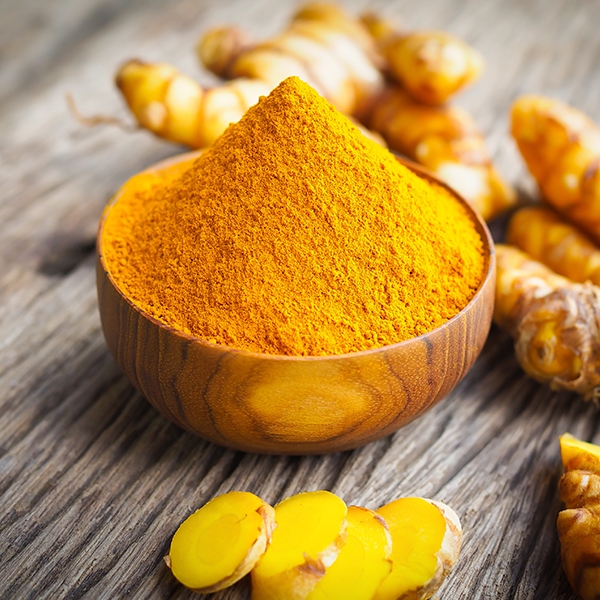
Turmeric, now accepted globally as a super-food, is a powerhouse of Curcumin that increases the blood circulation in our body. It naturally raises the temperature of our body and is highly recommended in a combination with hot milk. Using a pinch of Turmeric in curries, soups and even desserts like puddings helps incorporate this golden spice easily in your diet. Turmeric powder increases the production of enzymes that help detoxify the body. It also works as an internal cleanse and promotes healthy liver functioning. This spice is hailed in Ayurveda as an immunity booster and it is the perfect natural medicine that helps with many a winter woe.
ROOT VEGETABLES:
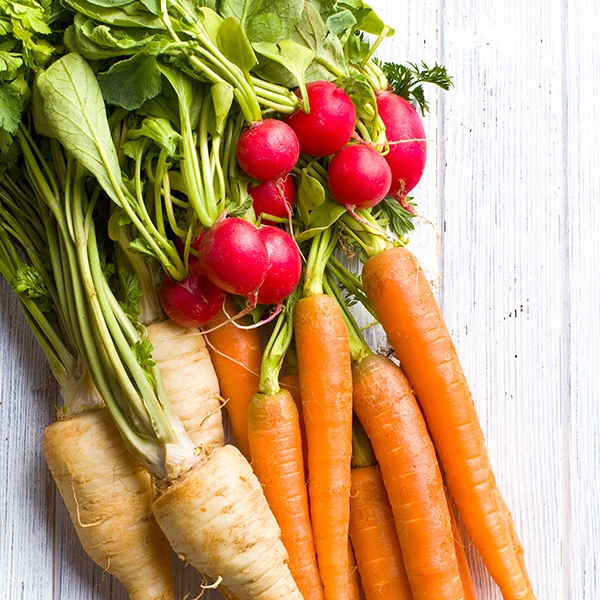
Yes, there is good a reason why the markets are flooded with root vegetables during the winter. It is simply how Mother Nature meant it to be. In sync with the concept of Ritucharya and seasonal eating, root vegetables like Carrots, Radishes, Yams, Turnips, Beetroots and so on make for the perfect winter food. These vegetables that are in season during the colder months are loaded with antioxidants, vitamin C and minerals like potassium, phosphorous, magnesium, beta-carotene and more. All root vegetables are an excellent source of dietary fiber and hence ensure smooth digestion in the dark winter months. They also make for great winter treats like soups, purees, mashes and can even add texture and flavor to your winter barbecue. Add some spices like cinnamon, ginger, and turmeric for a wonderfully warming winter meal.
JAGGERY:
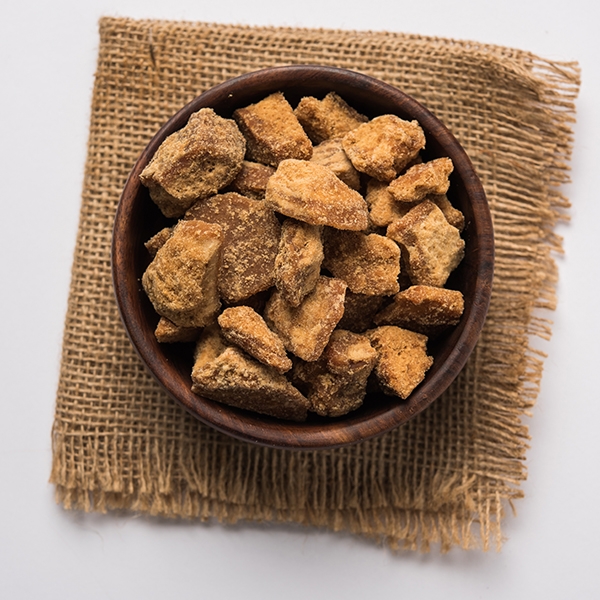
Jaggery is the perfect, healthy & natural replacement for sugar in our daily diet. More importantly, as recommended by Ayurveda, it has a very positive effect on our digestive system. This is especially true in the winters when consuming Jaggery helps increase energy levels to fuel an otherwise sluggish constitution. It is also a rich source of iron and vitamin C and is highly recommended as a remedy for congestion and respiratory disorders. A cup of Jaggery tea helps alleviate a sore throat and eases irritation as well. It can be also consumed after meals or with other warming foods such as Ghee. In the colder months when there is a tendency towards lethargy, Jaggery is a remedy that helps keep our ‘digestive fire’ stoked and healthy.
CHILLI PEPPERS:
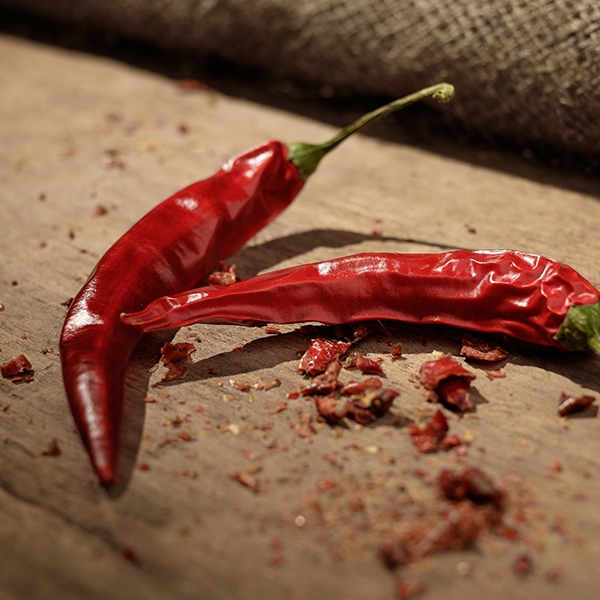
If you can handle a good spicy hit, then chilli peppers can be your special food for the winters. Capsaicin, a chemical found in peppers, is known to induce thermogenesis which is the process of converting energy into heat by the body. When we bite into a hot green chilli, this is the process that makes our ears go red, temples sweat and body temperature rise. This also explains food in the mountain regions of India is spiced heavily with chillies as well as other warming spices like cinnamon, cloves and bay leaves.
Do you know that even fresh fruits like Apples and Oranges are considered ‘warming’ in Ayurveda? Spices like Pepper, Cardamom, Cloves, Ginger and many nuts and dried fruits like dates, figs, apricots, and raisins have profoundly warming properties. Including these in our diets can help protect us from the chills and also boost our immunity and energy levels when the cold weather strikes. So this winter, add warm foods to your diet to experience that extra warmth while keeping yourself healthy and happy.
